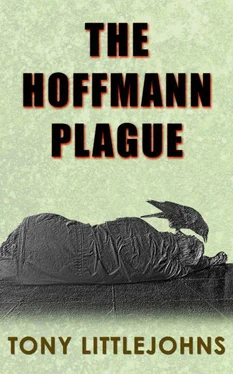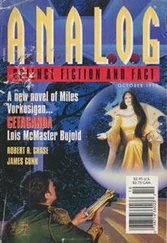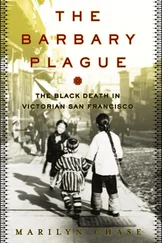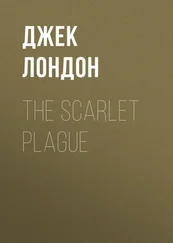He decided to begin searching at the western end of Bexhill towards Cooden, which was just over a mile away. He knew there were many large properties in that area, with large gardens to match. He thought of South Cliff; the houses there backed onto the promenade and beach and had direct access from the gardens. While they would be nice and convenient, he also thought they might not be conducive to growing vegetables and other produce, being at the mercy of strong sea winds that battered the coast regularly. He thought maybe he should be looking one or two roads back from the coast, to give some protection from the winds. He wanted a south-facing property, if possible, to get maximum sunlight for growing things, a large garage to use as a workshop, a conservatory that would double as a greenhouse for growing tomatoes and other plants, and open fires or wood-burning stoves.
He decided to go by bike; the area he intended to cover wasn’t that big, but getting there and back would be far quicker by bike. He packed what he would need in his rucksack, including food, water and a few tools. The bolt-cutters he strapped onto the bike rack; they might prove useful, even though they were heavy.
It proved to be a slow process and far more time-consuming than he had imagined, as well as being very harrowing. A house might look suitable from the front, but when he looked round the back he was disappointed. And sometimes it was difficult to gain access to the back gardens, involving climbing walls, fences or gates – often to be disappointed. Some places were suitable in some respects but not in others. He looked through many windows and broke into several places – in some cases the doors were unlocked – to see if there were open fires or log-burners and to get a general feel for the suitability of a property. Death was present almost everywhere he went; people alone, couples, entire families – sometimes in bedrooms and sometimes all together in the lounge. In one house he found the bodies of a couple lying on the floor in the lounge in front of a cross on the wall.
By late afternoon he was frustrated, exhausted and sick to his stomach by the stench of death. He hadn’t found anywhere that ticked all the boxes on his list in the roads one or two rows back from the sea. He thought, though, that he had the answer to something that had been bothering him: why weren’t there more dogs around? He had wondered about it and found it strange; he’d imagined there would be packs of them roaming the streets. It seemed, though, that most had died indoors with their owners; whether from the plague or from dehydration he didn’t know. He had heard some dogs barking over the last months, but relatively few.
He did, however, have one lucky find: he gained entry to one house he thought might be suitable, only to find that the rear garden was mostly paved over. Damn! In the master bedroom, a couple rotted in their bed; on the bedside table were an empty bottle of whisky and two empty pill bottles. They’d obviously taken a less painful death, rather than waiting for the plague to finish them. Good for you. Rest in peace. In the next bedroom, which had been turned into a study, there was a gun case on the wall containing three shotguns, all twelve-bores: one side by side and two over and unders. He smiled to himself; Yeah, baby, come to Papa! On the walls were many photographs of the owner at clay pigeon shooting competitions, at clubs, and out in the countryside shooting game. He used the bolt cutters to cut off the lock and removed the guns.
Underneath was a locked cupboard that he broke into, containing many boxes of cartridges in varying shot sizes. He knew from his old fishing days about sizes of lead shot – the higher the number, the smaller the size, and it was the same for shotgun cartridges. The boxes varied from No.9 down to No.4, which was fairly large shot. Each lead ball in the cartridge was over 3mm diameter and they would pack a hell of a punch. There was also a boxed kit for gun maintenance and cleaning, service manuals and two shoulder bags for carrying them. On a bookshelf were many books on shotguns, shooting and hunting. He knew nothing about guns apart from what he’d seen in films or read in novels, so he picked two that covered gun maintenance, shooting and hunting techniques and put them in his rucksack, along with all the boxes of cartridges and the cleaning kit; it was bloody heavy!
Outside, he strapped the shotguns to the bike rack and cycled home slowly due to the extra weight; a little frustrated at not finding a suitable house, but at the same time elated with finding the guns. He hoped he’d never have to use them on people, but was aware of the possibility with the way things were now, and he felt a lot safer having them for self-defence as well as for hunting.
That evening he drank a bottle of red wine and listened to music on his MP3 player; he had two solar-powered chargers for various sizes of batteries and also for his MP3. The track Sovereign Light Café by Keane was very nostalgic as he’d often gone to that café on the seafront before the plague, and it brought back memories of how life used to be; he got upset and turned off the music.
He felt lonely: he’d always been comfortable with his own company and had lived alone since his divorce many years earlier, but the new status quo changed everything. Before, if he’d felt the need to be among people, he had only to visit one of the many cafes in town; that ability was now gone, obviously. Bexhill had become a ghost-town and walking the silent streets was creepy and infinitely depressing. The prospect of never again hearing a child’s laughter brought tears to his eyes whenever he thought of it.
He wrote a few lines in his diary; he’d tried keeping a log of events since it had started, but had often lapsed. On a whim, he scrolled back through the diary to a point where the pandemic had begun; he couldn’t remember exact dates, so just chose the beginning of the year. He decided that there should be a new calendar system of year-classification to replace B.C. and A.D. as they seemed somehow irrelevant now. On the 31 stDecember he wrote B.P. (Before Plague), and on the 1 stJanuary he wrote A.P. (After Plague, or even Anno Peste; year of the plague). So he was now living in the year 1AP; if the human race ever recovered, he wondered if his system would be adopted and gave a little smile. He then read sections from the shooting books and practised stripping the guns down for cleaning and maintenance before going to bed.
The next morning was wet and cold. He awoke early, feeling strangely refreshed and clear-headed, and sat on the stool in the kitchen with a cup of coffee and a cigarette, remembering his last thought before he’d fallen asleep. He now had three shotguns: the two over and under guns he decided to leave as they were as they were easier to aim when hunting. The side-by-side, however, he decided to cut down and turn into a sawn-off: that way, it would be about two feet shorter and would fit into his rucksack, making it far easier to carry around and turning it into an effective self-defence weapon, should he need it. It didn’t take too long to cut the barrels off with his hacksaw, and he filed and sanded the ends smooth to remove all burrs. He felt like a gangster in some East-End film getting ready to rob a bank and smiled!
Afterwards, he took it down to the beach, along with one of the other shotguns, and fired off some practice shots at signs and at one of the groynes to get a feel for handling the guns. Satisfied, he went back to prepare some food.
During breakfast he decided to look at the houses along South Cliff after all, despite his previous thought that they would be unsuitable as they backed onto the seafront and would be too windy. He packed everything he might need into his rucksack, including the sawn-off shotgun, loaded with No.4 shot, and spare cartridges in his pockets and rucksack. He decided to walk this time as he hated cycling in the rain, so he left the bolt-cutters behind as they would be cumbersome.
Читать дальше












